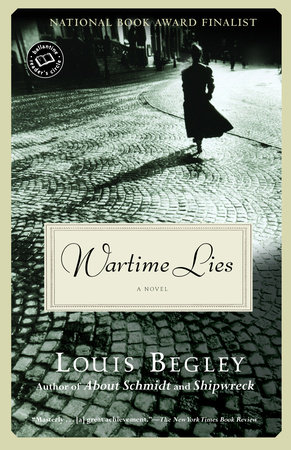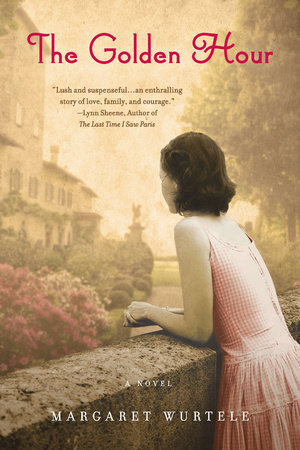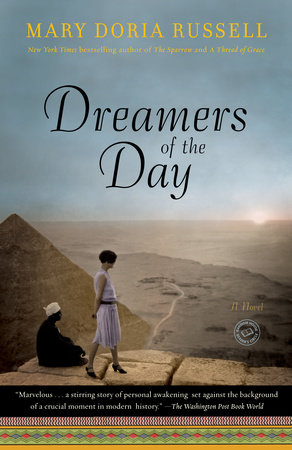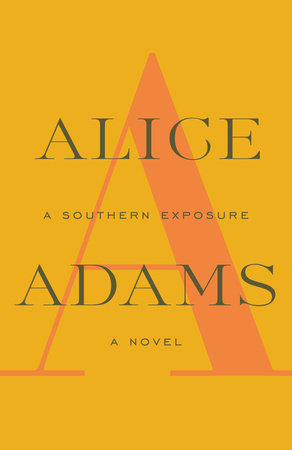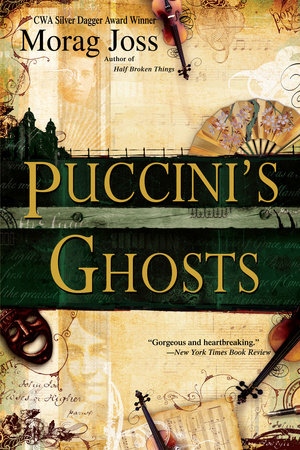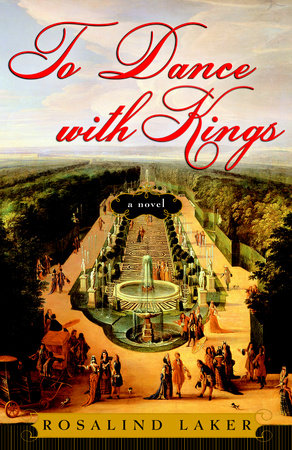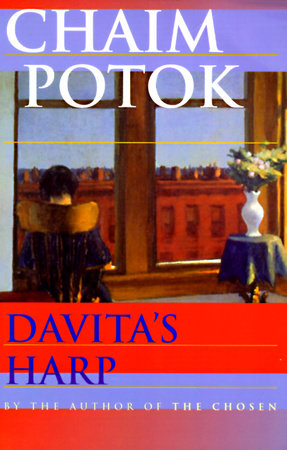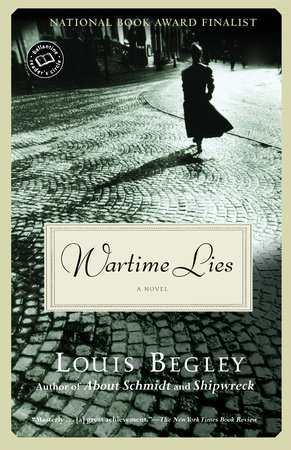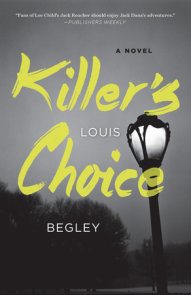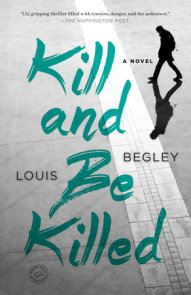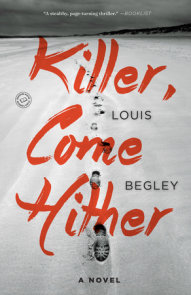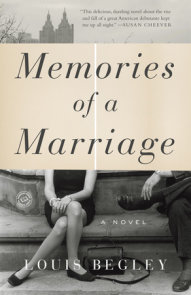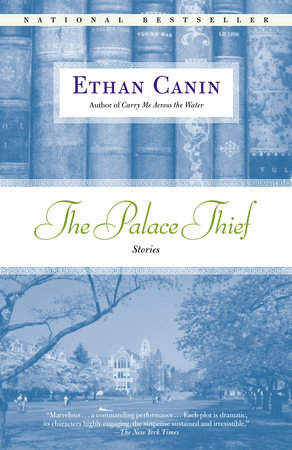Author Q&A
A Conversation with Louis Begley
Jack Miles, former book editor of the Los Angeles Times and past president
of the National Book Critics Circle, won a Pulitzer Prize for his book
God: A Biography (Vintage). After the publication of Christ: A Crisis in
the Life of God in 2001, he was named a MacArthur Fellow. A former
Jesuit, widely published on cultural, religious, and literary topics, Miles
serves as senior advisor to the president of the J. Paul Getty Trust and
as senior fellow with the Pacific Council on International Policy.
Jack Miles: The body of this novel is written in the first
person, but it opens and closes in the third person, and the
voice we hear then intrudes twice along the way—I think,
especially, of the end of Chapter IV. What were you aiming
at by this shift? What should readers be watching for in their
own reaction at these points?
Louis Begley: There are several reasons for the change
that occurs at the very end of Chapter IV from first-person
narration—the speaker until then having been ostensibly
little Maciek—to narration in the third person by an authorial
voice.
The first one involved my personal, very intimate feelings.
During those years of catastrophe and horror, the conduct
that hurt and humiliated me most was that of my
fellow Poles: their hatred of Jews, their utter callousness in
the face of the unspeakable suffering and extinction of their
former friends and neighbors, their contemptible duplicity.
It was a breach of fundamental good faith and betrayal that
scarred me more than anything I saw done by Germans or
Ukrainians. I know perfectly well—and you and my readers
should not doubt—that there were Poles who showed extraordinary
decency and courage in their dealings with Polish
Jews, risking death and torture at the hands of Germans.
Alas, they were invisible to me in the vast grey mass of the
others. The ultimate injury and betrayal was, of course, the
virulence of Polish anti-Semitism in evidence immediately
after the Soviet army drove the Germans out of Polish territory,
as demonstrated for instance by the pogroms and
killings in Kielce and Cracow, events that cause little Maciek,
his aunt, and his father to continue the lie of Aryan
identity. I found myself overwhelmed, unable to control my
voice, when I tried to describe the continued humiliation in
words spoken by Maciek, and to show through him the
depth of his disillusionment and despair. It occurred to me
that this was a job for a grownup. So I let the author or perhaps
—the ambiguity is intentional—the same “man with a
nice face and sad eyes” who in the first pages of the book
remembers his childhood in Poland express Maciek’s anger
and scorn. And, of course, announce the “death” of the
little boy.
Second, I thought that as a matter of aesthetic choice it
would be right to balance the first pages of the book, which
give the point of view of a grownup—the man who we are
led to think was the child he chooses to call Maciek—with
a return on the closing pages to a grownup’s vision and tone
of voice. Finally—I return here to deeply personal feelings—there
were moments during the composition of Wartime Lies when
I literally needed to pause for breath. The italicized passages
drawing on Dante’s Inferno are such stops on my via dolorosa.
They represent attempts by “the man with a nice face,” or
perhaps by the author, to call to his aid the greatest connoisseur
of evil in Western literature, one who was equipped
with a remarkable grid of values through which to assess it.
They allowed me to have someone other than Maciek speak.
That was an urgent necessity. Curiously, I thought of those
passages at the time as a window letting in fresh air just as I
was close to suffocating. Something of the same nature was
at work in the intrusion that closes Chapter IV.
It is a task for the reader’s sympathy and imagination to
search for further links between these disclosures and Maciek’s
story.
JM: Is your ideal reader one who will forget the adult
Maciek—actually, as you point out, an unnamed, sad-eyed
adult—most of the time and simply relive the harrowing,
suspenseful experiences of the boy? Or do you instead
dream of a reader who will, at each step of the journey, think
not so much of the boy as of the adult remembering him?
LB: My ideal reader is attentive and blessed by the gifts of
sympathy and imagination. You will note that I am going
back in this reply to what I said in answer to your first question.
Provided the reader has those qualities, all I want to do
is to withdraw, to get out of the way and let the reader make
of my work what he or she wishes.
That being said, I believe that if I were the reader I would
think of myself as Maciek; I would crawl into his skin. I also
believe that I would not be able to keep out of my mind the
questions raised by the passage in which the adult man remembers
what may have been his own childhood: What is
such a man like? How does one grow up after a childhood
that has been similarly blasted?
It may interest you that my working title for Wartime Lies,
which I abandoned with some reluctance, was The Education
of a Monster.
JM: That title strikes the ear as a slap strikes the face. I
wince at it. But even Wartime Lies, as a less confrontational
alternative, has something hard and unflinching about it.
“Lies?” the reader thinks; “Don’t you mean disguises? Or
maybe ruses?” But what were objectively disguises or ruses
were subjectively lies. To give the matter a very innocuous
formulation, Maciek acquired some bad habits, thanks to
Nazism and Polish anti-Semitism. When wartime Poland
was behind him and he could finally drop the ruse and
shed the disguise, those bad habits may have lingered.
Something in the reader, as this theft of childhood takes
place, wants you to go a little easier on Maciek—one might
even want you to like him a little better. But during the war,
Maciek dared not go easy on himself or, so to speak, sweet
on himself. A single moment of self-indulgence, and all
would have been lost. This may be the wartime attitude—I
do not call it a lie—that lingers most powerfully into this
book about his experiences.
Perhaps Maciek’s “education,” in the dark sense of your
abandoned title, begins on page 39, when just after a Jewish
visitor, Bern, has left the house, Maciek’s grandmother gives
a bitter little speech, repudiating her daughter and her husband
at a stroke and linking them by emotional association
to, of all things, a pogrom she witnessed as a girl. This is
shocking enough, but then she says that as bad as that was,
what Bern has said is worse: . . . never, in all that time, or
anytime until now, had she heard anyone talk as shamelessly
as Bern.” What is so utterly shameless about what Bern has
said? How could it possibly be worse than a pogrom?
LB: Here’s why. Bern, after musing about how in the town
of T. the Germans have already imposed on Jews the obligation
to wear the armband and the yellow Star of David, goes
on to say that “If the Jewish community offices acted responsibly,
and our dear café intellectuals for once avoided
provoking the Poles, perhaps we could remain as we were.”
Of course, this is nonsense and goes to prove—if additional
proof is needed—that Bern is a fool. The disasters befalling
Polish Jews have nothing to do with whether they “act
responsibly” by collaborating with the Germans or with
whether Jewish intellectuals “avoid provoking” the Catholic
Poles. They are instead irreversible steps being taken by the
German occupying forces on the road to the final solution.
The grandmother is not as bright as Tania and does not
seem capable of the deep, fearless insights of the grandfather.
But she has her common sense which makes her understand
the shameful reality that lies behind Bern’s chatter:
Bern is identifying himself with the enemy, and adopting
the enemy’s point of view, probably because the German
enemy is overwhelmingly strong and the Catholic Poles
who abet the enemy are so dangerous. He is deserting his
own side, if I may use that metaphor, although he does this
for a short while only: Soon afterward he flees to the forest
to join a group of partisans. Something rather similar happens
to Maciek when he kills bedbugs in the various rooming
houses in Warsaw (pages 93–94) and when, in the games
he plays with lead soldiers, he decides that his best troops are
the Wehrmacht and the SS because “they looked like winners”
(page 66). Perhaps today one would conclude that
Bern and Maciek suffer from Stockholm Syndrome.
Why is what Bern said worse than a pogrom? I suppose
because the pogrom that the grandmother remembers did
not shatter the solidarity of Jews in the face of their tormentors.
Now she perceives the possibility that Jews may be
turning against other Jews.
JM: Let’s talk about some more complex and costly desertions.
On pages 68–69, Maciek says “Now [Tania] thought
she loved [Reinhard, a German soldier who had become
her lover and the family’s protector], probably as much as
she had ever loved anybody.” Am I right to link this to page
120, “The day of my first Communion came. Tania offered
to give me breakfast on the sly in our room, but I refused. I
wanted to be clean inside, just as Father P. had directed?”
Tania’s most extended, elaborate dissimulation involves
sex; Maciek’s involves religion. She has a German lover;
he is about to make his First Communion as a supposed
Catholic. Absent all duress, Tania and Reinhard would almost
certainly not be a couple, and Maciek would not be
taking instruction from Father P. Are they deceiving others
or deceiving themselves?
LB: Perhaps I should go back to your question about the
grandmother and Bern, at page 39. At the top of the very
next page Maciek relates how Tania responded to the
grandmother: “Tania looked very tired and very calm. After
a while, she turned to my grandmother and said, You don’t
know yet what is shameless, you don’t know yet what we
will do, just wait, you will see before you die.” Of course,
Tania is right, because worse is yet to come, including—
although she cannot possibly foresee it specifically—her liaison
with the good German, Reinhard. However understandable
and justifiable, that is the ultimate disgrace, and a
reader who follows carefully Maciek’s report of Tania’s and
his own existence in Lwów (especially pages 60–73) will see
how that aspect of her condition is present in her mind.
This leads me to think that you are right in your assessment:
To love Reinhard—possibly she really thinks she does—
makes her case less sordid, even if it doesn’t exculpate her. I
believe also that she is likely to think that telling the little
boy that she loves Reinhard will make it easier for him to
accept the searing fact of their ménage.
I agree that something similar is at work when it comes to
Maciek’s catechism class and taking Communion. According
to Maciek’s rules of decency, what he is doing is despicable.
He will do it nevertheless, because he has no choice,
but he will perform the defiling act as cleanly and respectfully
as possible. An absurd notion? Perhaps. But I think that
is the psychological truth.
JM: And that subtle psychological truth is, I gather, what
you want the reader to understand, whether the reader excuses
it or not. Earlier in this conversation, you called Dante
a “connoisseur of evil.” Perhaps only a connoisseur of evil
would see Tania’s interaction with the begging Jew, Hertz, as
bringing her to a point “so degraded, that she had no trust left
and no pity.” A coarser mind might think that sleeping with a
German soldier had degraded her worse. But this is not how
she sees the matter (page 73), and the aftermath of her encounter
with Hertz is evidently one of those moments in the
writing of this book that were so intense for you in the writing
that you had to, as you say, “pause for breath” in the interlude
on pages 73–75. Would you care to comment?
LB: Yes. Once again, I must go back to the grandmother,
and her outburst about the shamelessness of Bern’s talk. As I
have said, I think she has in mind the shattering of solidarity
among Jews. In the passage you have now referred to, Tania’s sees further
and more deeply. I believe that she takes her fear and
distrust of Hertz to be signs of the shattering of all human
solidarity, a vaster, and, for me, an unbearable vision.
JM: “I was chained to the habit of lying, and I no longer
believed that weakness or foolishness or mistakes could be
forgiven by Tania or me” (page 171). This seems to be a
moment of bleak truth for Maciek corresponding to the
one mentioned just above for Tania. The reader is prepared
to forgive the two of them almost anything and wants to believe
that their integrity will emerge unscathed from their
ordeal. They themselves seem not to share this belief. They
do not see moral integrity and psychological deformity as
mutually exclusive. Innocent though they are, their experience
has left them in some sense morally damaged. It must
be both emotionally and conceptually difficult to speak of
this damage and yet pointless to speak of the experience at
all without speaking of this aspect of it. Does this explain
why “Our man avoids Holocaust books and dinner conversation
about Poland in the Second World War” (page 4)?
LB: I do not think that the man with “sad eyes” would
agree that he has—except for his skin being “intact and
virgin of tattoo”—escaped unscathed, and I doubt that he
thinks that Tania has had that good fortune. On the contrary,
“he believes that he has been changed inside forever,
like a beaten dog . . .” (page 5). He expresses no view about
Tania but I think that if he were to do so it would turn out
to be the same. He avoids “Holocaust books” and conversations
about wartime Poland for complex and somewhat
contradictory reasons. As for conversations, there is first of
all his pudor, his sense of decency: he does not want to desecrate
this subject by loose talk. Books either do not come
close enough to the truth as he understands it and, therefore,
their effect may also be a form of desecration, or, on
the contrary, when by the force of their emotional truth
they put him face-to-face with his memories, they are unbearably
painful to read.
There must be in all developed religions and in secular
ethics permission to lie in self-defense, in order to avoid
gruesome death. I doubt that the man with “sad eyes” is
concerned about lies told in order to survive or other deceptions
or even the devastating need to take Communion.
But innocence and moral integrity? I am not religious, but
if I were I wonder whether I would think of either Tania or
Maciek as “innocent.” What do we make of Maciek’s sexual
longings and his nascent sadism?
I tend to think of the world described in Wartime Lies as a
world where everyone bears a burden of guilt. However, no
amount of guilt that Maciek or Tania or the grandparents or
any other Jews I mention may bear justifies, so far as I am
concerned, the punishment visited upon them by Dante’s
somma sapïenza e ‘l primo amore.
JM: “The highest wisdom and first love. . . .” God is ultimately
the guilty party, but neither Tania nor Maciek ever
brings the indictment. There are moments when the indictment
would be justified, but it is as if they have no room for
it in their minds, no energy left to drag Him into court.
There is actually one prayer in the book, a borrowed
prayer. On page 5, the man with “sad eyes” quotes the
prayer of Catullus, “Grant me this, O gods, for my piety’s
sake” (O di, reddite hoc mi pro pietate mea). Catullus was a connoisseur
of love, as Dante of evil, but of the afflictions and
perversions of love no less than of the joys. In another line
that echoes in the man’s memory, Catullus says, “Myself, I
yearn to heal and to shed this foul morbidity” (Ipse valere
opto et taetrum hunc deponere morbum). Can he not love with a
joyous, youthful spontaneity?
During the years covered by the novel, Maciek has a degree
of physical access to women unusual for his age (six to
twelve). There is nothing feigned or falsified about his attraction
to them. It is, on the contrary, the most honest and
authentic part of his life. Why, then, does the man who remembers
this boyhood sexuality repeat a borrowed prayer
for recovery? Or do I misread him? Is his prayer rather to
have just that kind of intimacy back again?
LB: In part you may have misread me; in part you have put
your hand on something very important.
The references to Catullus are neither an indication that
“the man with sad eyes” cannot love joyfully or spontaneously
—except as his childhood experiences may have
made him in all respects less joyous and spontaneous than
someone whose childhood was such as he imagines Catullus’s,
filled with sunlight and pleasures—or with our man’s
precocious sexual awareness and longings. That is, in any
event, what I think.
One reason why our man dwells on Catullus is that he
feels that Catullus’s need to “shed this foul illness,” taetrum
hunc deponere morbum, is the same in its dynamics and is
equally doomed to fail as his own attempts to heal. Of
course, the etiology of the two illnesses is different: desperate
and betrayed love in the case of Catullus, and the hurt of
war for our man. And that leads him to borrow Catullus’s
prayer, although, as he notes, the gods will not cure what
ails him and, unlike the poet, he has no good deeds to look
back upon that might be recompensed. He might have
added that he has no gods to pray to.
A more profound reason is my personal obsession with
the poet’s O di reddite mi hoc pro pietate mea, O gods, grant me
this for my piety’s sake. I used to repeat those words to myself
over and over, thinking about my father and about how
little good came to that kind man in return for all the good
he had done.
JM: You endow literary quotation with an almost liturgical
effect. When you quote Catullus, it is as if you acknowledge
the legitimacy of the wish and, to that extent at least, assuage
the pain of its unfulfillment. Quotation as minor
catharsis. . . .
Hearing this regret about how little recompense your
father had for his kindness puts me in mind of Tania’s grief
when she learns that her father, Maciek’s grandfather, has
been murdered. This was, Maciek says, “the worst day in
our lives” (page 184).Autobiographical fiction, on those rare occasions when
one can see it from the inside, so often seems to work this
way. What was in real life a son’s prayer for his father becomes
in the novel a son’s prayer for himself. What was the
grief of a son for his father becomes the grief of a daughter
for hers, and so forth—all in service to the larger truth that
the fiction attempts to convey.
One might well think, though, that the “worst day”
would have been that last ghastly day in Warsaw—the gang
rapes, the baby dropped down a manhole, the moment-tomoment
terror. What is it that makes this one death worse
still? Is it just that Tania loves her father so much? Earlier
(page 69), Maciek says “she claimed she had always had a
heart of stone except when it came to grandfather and me,
and neither of us even knew she loved him.” Is it that at this
moment Maciek discovers that, yes, Tania does at least truly
love this one man? Or is it that Tania, so supremely adult on
the surface, having sustained herself through everything by
thinking of the father who would somehow be there to
shelter and protect her after the war was over, now becomes
something of a lost child herself ? And is Maciek—weeping
for grandfather, weeping in fear—weeping as well because
he does not know whether Tania loves him as much as she
loved grandfather? This is the boy, one remembers, who
anxiously asked everyone, “Do you like me?” Finally, thinking
of your first answer, above, is this the worst day of their
lives because the grandfather has been killed by Pan Miska,
his own former estate manager?
LB: The answer to each of these questions is yes. I might
add another reason: the immense weight of wartime fatigue.
Those two do not think they have enough strength—never
mind hope—left to go on, to keep their bizarre and desperate
show on the road.
Indeed, as you have doubtless noticed, soon afterward
Tania makes her first big mistake. She permits herself to insult
the black market operator Nowak, who promptly denounces
them to the German police.
JM: “According to Tania, it’s just as well: Can you imagine
her hand being kissed?” (page 195). Tania’s sardonic comment
about Maciek’s new stepmother caught me in a surprise
laugh, the only laugh in the book. It made me believe
that Tania was going to be all right, after all. She may be one
of those women who only love vertically: up to father or
down to child. And yet, like her father (to her mother’s
annoyance), she is vivacious, sexually unabashed, and still
young. One does not imagine her, years hence, quoting
Catullus, as “our man” does in the opening pages, or yearning
for a healing that will not come. She is still herself, right?
LB: I am probably less optimistic about Tania. Of course,
the damage to her will be different from the damage done to
Maciek. She is a grown-up with a fully formed and strong
personality. But memories like hers are corrosive. Also, she
may never again have occasion to reach such heights of
courage and resourcefulness. Will a more quiet life inevitably
seem mediocre and insipid?
But that is speculation about matters that are outside my
novel and I have no better information about them than you
or any other of my readers.
JM: A somewhat similar moment—a moment of sudden
vigor and freedom—comes for Maciek when he defeats his
rebellious dog and, later, reacts with murderous anger as
well as grief when the dog is run over. But in this revival,
there is no flash of humor, and in the final paragraph we
read: “Maciek will not rise to dance again.” Tania may be
still herself, but Maciek will always be looking for himself
because the lies of his wartime fell between his sixth and his
twelfth year. He will remain, beneath the surface, twisted
into the shape those lies forced him to assume. Is this too
much to say?
LB: You are exactly right. That is the conclusion to which
I hoped to bring the reader.
JM: When my neighbor’s sons, now teenagers, were small,
I used to hear them and their friends at play through the
window of my study. What struck me—always in a happy
way—was the enormous excitement and animation they
brought to their games. In games, in make-believe, children
are like that. Everything is a matter of utmost consequence
and urgency. But children’s accounts of actual urgency, or
real catastrophe, seem often to go to the opposite extreme. I
have heard children in court speaking with a soft, almost affectless
simplicity that was more affecting for the hearer than
animation would have been. It is difficult, for example, to
imagine a child bringing an indictment against God, like
Goethe crying “Mehr Licht” on his deathbed. Do you see
any connection between your decision to make Maciek
your narrator for most of Wartime Lies and the restrained
style of the work? Would you care to comment on the
rhetorical range that suits this subject matter best? Where do
you locate this work in the literature that the Shoah has provoked?
Or do you ever think of it that way at all?
LB: I can give a partial answer.
Clearly, the decision to have the little boy tell the story—
a decision that I reached at the very outset and never put in
question afterward—imposed the simplicity of the narrative
style. There was also the constraint that came from my writing
Wartime Lies in English, although everything in it was
taking place in my mind in my native tongue, which is Polish. I wanted to be somehow faithful to the strains of Polish
I heard in my ear, and a certain chastity of expression was
the only solution I found. You will have doubtless noticed,
by the way, that I avoided direct dialogue. That was because
I would not have known how to render it in English. To
give you a small—but for me very important—example, I
could not have borne to have the little boy address his father
as “Daddy”!
You are right about the way children become almost
silent when hurt or under extreme pressure. That has been,
almost always, my own response.
Then there is the fact—an odd one—that when I was
writing Wartime Lies I had in mind Madame Lafayette’s “Princesse
de Clèves,” a love story set in late sixteenth-century
France. The subject is clearly a world away from mine, I have
only read Madame Lafayette’s masterpiece in French, and yet
it is the style of that little novel, which is as pure as a diamond
of the first water, that was my conscious model.
I avoid placing myself on lists of writers or my novels on
lists of works by other authors. Also, I have largely avoided
Shoah literature, for some of the reasons I have attributed to
the “man with sad eyes” in an answer to one of your earlier
questions. The most I can do is to name the authors who
have written about the Holocaust I admire fervently: Tadeusz
Borowski and Primo Levi.
JM: Dante for evil, Catullus for love, and Virgil, I suppose,
the third poet who presides over this work, for catastrophic
defeat and noble recovery: Sunt lacrimae rerum. Virgil rather
than Homer: Homer is for those who win their wars.
On the language question, some have seen Joseph Conrad’s
style in English as mysteriously indebted to Polish.
Some survivors of the Holocaust have wanted to leave their
native languages behind—as have, by the way, some Germans.
Some, like Joseph Brodsky and Czeslaw Milosz, have
gone back and forth. The subject of how and why a writer
chooses to write in a second language is a large and tangled
one. Perhaps English, precisely by its foreignness, enabled
you to clothe memories that would have been, as it were,
naked in your native language and too painful to speak
aloud. Your reference to the word daddy is painful even to
read. I suspect, though, that among the readers most grateful
for your turning this subject into fiction are those who have
had comparable experiences themselves, comparable pain in
speaking of how the experiences marked them, and comparable
reactions to what has been made of them in others’
writings and others’ art. Wartime Lies has found a wide and
varied international audience; but had it been written even
for them alone, as a long personal letter to the members of
a fraternity of pain, it would be a signal service as well as a
moving literary achievement.
